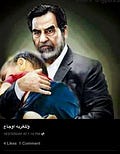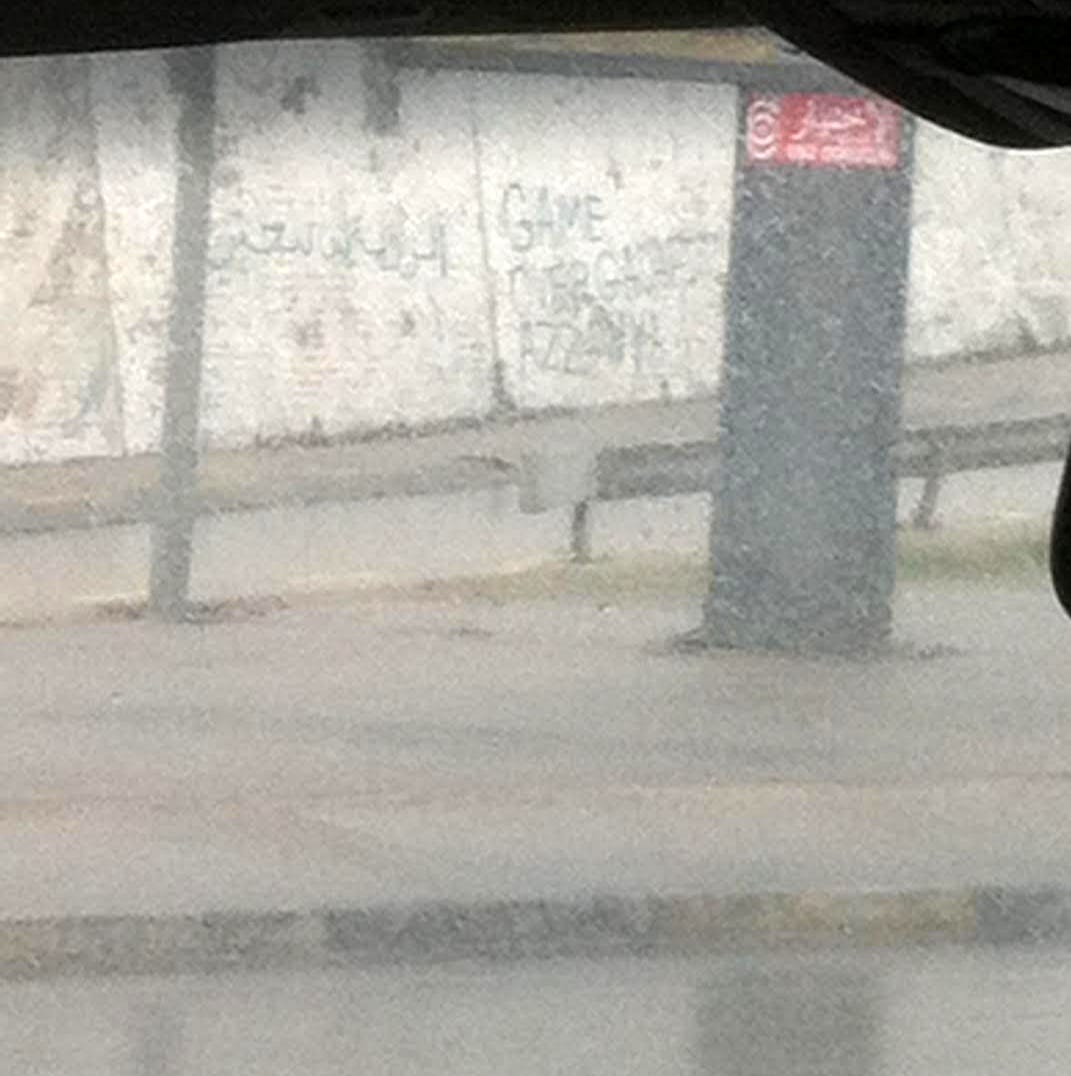Ideological Kabuki at the Empire's Periphery
On the ground in Libya after Gaddafi's death
This is a Carousel guest piece by a Twitter anon
I spent New Year’s Eve 2014 in a hotel in Tripoli speaking with a politician fighting to remain relevant on his country’s national stage. Two sides were emerging in post-Gaddafi Libya, and our man was relegated to the sidelines.
A former mayor of Tripoli appointed Prime Minister by the Libyan Supreme Court, he was looking for Americans who could plead with our government or the UN to include him as a party in forthcoming peace talks. That we probably didn’t have the juice we all knew but was left unsaid.
Over the years, lots of political hacks (including those near the current American president) have made fortunes bilking dictators in exchange for the promise of political assistance, but our host wasn’t really a dictator and we weren’t really getting paid. My main thought on the Libyan conflict and our host’s role in it was that people aren’t obligated to tolerate abuse indefinitely, but that’s hardly an ideology. And so now a man that had risked his life to fight a dictator was contorting himself for recent college graduates who could supposedly help him back in Washington.
I’ve traveled to a few war zones, but still I wonder if I know anything about human conflict. War is an alien planet, and you can visit but that doesn’t make you a Martian. Once, sitting in a tent in the Jordanian countryside, a Syrian rebel calmly asked me if I’d cross the border just a few miles into Syria to see a pile of burnt corpses. The dead men, he elaborated, were Afghan mercenaries his troops had killed. My knowledge of the Syrian conflict leads me to believe the corpses were likely Hazara migrants, Shiite Afghans arrested in Iran without papers and given the choice of jail or war.
His comments confused and perplexed me. Now I think maybe his intent was something like, “you’re in this tent talking to me because you say you want to understand the conflict in my country. But if your desire is sincere, the real first step is to go stare at the dead bodies of men from another place entirely who probably didn’t know the name of the place where they died.” If war can’t be understood, at least my fantasies will be poetic.
The war in Libya seemed almost uniquely poetic at first. There were weird stories about American college students going to fight. Videos of teenagers liberating Ferraris from government compounds and doing donuts in the street. In the fragments I saw online, the war possessed a captivating combination of Arab resolve and African joy. As a branding exercise, its initial months were a wild success.
But things were decidedly less poetic by the time I arrived at the end of 2014. ISIS had gained significant territorial holdings, broad coalitions had been seized by their most brutal members and a strange general from suburban Virginia was making a plausible effort to take the country for himself. Internationals were bailing on the project they initiated, packing up the democracy starter kit in yet another Arab state.
This international exit was the weird subtext of our Tripoli meeting. Our host—the mayor of Tripoli— felt obliged to put us at ease that Libya was in fact a deserving member of the global community. A sensible instinct at the beginning of any relationship. But his points of emphasis hinted at little more than what an Arab might worry an American thought of Arabs. Libyans didn’t hate Jews, he assured us, and offered as evidence the fact that Dustin Hoffman was extremely popular in the country. Libyans weren’t sympathetic to terrorism, or if they were it was because peaceful opposition to Gaddafi was not allowed. Or, even better, the terrorists were trained and supported by Gaddafi.
The former mayor of Tripoli was in every sense my senior in life. He had negotiated a war and come out on top. Despite all that, he still felt compelled to convince us he was not insane. He didn’t go so far as to say the Free Islamist Democratic Libya would be safe for trans people, but this was 2014. I got the impression he was more than capable of updating his talking points.
But while the big boss had remarkable insight into the sensitivities of Americans, members of his security detail were less circumspect. These were the men we spent all day with, who drove through crowded city streets at 60 KMH and kept loaded ak-47s rolling around under the car seats. These guys, extremely gracious and open, had different explanations of the war and where Libya was headed.
In one startling instant, one of our minders' phones slid out of his pocket and into the back of the car. In the process of grabbing and handing it back to him, I saw that the phone's wallpaper was a picture of Saddam Hussein. Later, alone smoking cigarettes, I asked him about it.
“Gaddafi was a faggot,” he said “Saddam kept Iraq together until the Jews made war on him.”
I worry that American readers will be unduly focused on bigotry. My point is that If he does the job, in this case “keeping a country together,” people tolerate a dictator. If he fails, they’re less tolerant.
This political reality precedes concerns about ideology or form. Gaddafi had lost the ability to prevent mass violence with limited violence. A state that cannot offer this offers nothing at all, the same in Libya as in the Capital Hill Autonomous Zone. People will say the dynamics that led to the revolution were an outgrowth of the Arab Spring, itself seen by many as a sort of astroturf movement created by intelligence agencies and NGOs. I’m sure this narrative was partially true, and in fact I was part of that machine. But the gun-toting teenager with an admiration for Saddam was not fighting for the National Endowment for Democracy. I think he sensed a dangerous vacuum opening in his own society and felt obliged, for better or worse, to try and fill it.
What I learned in Libya was that if you are American, people will contort themselves into whatever shape they think you’re most likely to support. These potential clients would benefit from a bit of competition among patrons, but even in its degraded state, Turbo America is often the only game in town. And so people facing annihilation become a Rorschach test for American political idealism.
And this is the bizarre outcome of American global leadership. A nation born of ideas requires fealty not just to the state and its prerogatives but to its ideas as well. And so credentialed Americans keep searching the most hostile terrain, hoping to uncover people who look like jihadists but think like Thomas Jefferson. In Ukraine, for example, we’re endeavoring to pick a winner and justifying the choice based on which side is most competent at ideological mimicry.
A few weeks after we returned home, the same young man with the Saddam photo sent me a picture of my hotel room in Tripoli. It was now riddled with bullet holes, apparently the result of an ISIS attack on our hosts. I worry now that ISIS has a certain advantage in a place like Libya: they don’t rely on people like me.







Your comment about Saddam was spot on. I lived in his palaces in Tikrit in ‘05. Talked to Shiites that had been ravaged by his leadership. Then in 08 we were getting fucked up by Muqtada”s boys. Iraq is so secular that it took a dictator to hold it down.
I agree with you about the US stance on Ukraine. Fucked up as it is. I live here now and I see it as a fight for independence. But I also think the world is in need of a good nuking. People are soft too comfortable and whack as fuck.
I remember looking at pictures of Libya from the early 70s late 60s and it was a jewel of Africa. Like most secular places are it ate a shit sandwich though I’m foggy on the particulars now.
Great article though. Through the politics you drove home the real and human look on the situation. I hope you’re not still in harms way and if you are you’re wearing Kevlar skivvies.